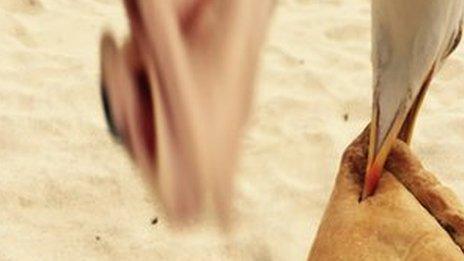'Hoodie' advice for people in seagull attack areas
- Published
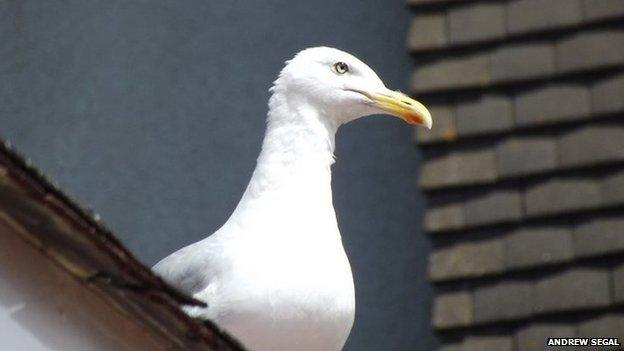
Peta says councils should use "humane" methods to deter seagulls, rather than culls
People attacked by aggressive seagulls should wear a hoodie for protection, according to animal rights supporters.
The advice, from People for the Ethical Treatment of Animals (Peta), comes as gulls reportedly killed a pet tortoise and a Yorkshire Terrier in two separate attacks in Cornwall.
Another woman in Devon claims she can no longer use her garden because of a gull nest.
Peta has written to councils urging the use of "humane" methods to deter birds.
Penelope Crawford said she "was concerned about being trapped in my house" because of a baby seagull in her Teignmouth garden, which was being protected by "zealous parents".

Peta seagull recommendations:
Using green lasers to evict birds from their roosts and employing anti-roosting products
Implementing scare tactics, such as sonic devices, water sprinklers or effigies of predators
Removing artificial sources of standing water, keeping trees and other vegetation trimmed back, and securely containing rubbish
Enforcing a strict wildlife feeding prohibition would also likely stop the birds from attacking since they typically attack to obtain food

She added she could not go into her garden or on a balcony "without being attacked."
"I am supposed to be trying to live a stress-free life due to health issues and this situation has got me really down," said Ms Crawford.
Peta has written to Cornwall Council and North Devon District Council, saying there were "number of ways" authorities could deal with seagulls by using deterrents and curtailing food sources.
The advice states: "If people want to take further precautions, they can put on a hooded sweatshirt or hat or open an umbrella to deter 'aggressive' birds."
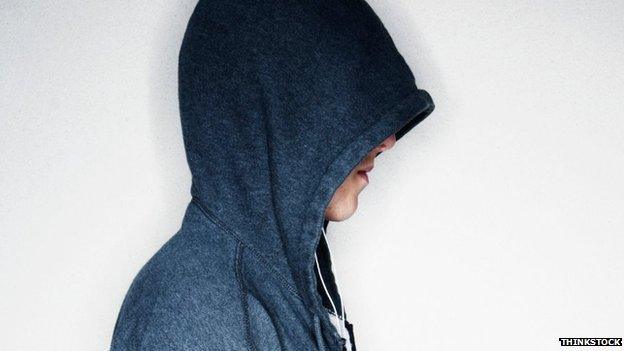
Peta's advice includes "put on a hooded sweatshirt or hat" for protection
The organisation told the BBC: "This isn't the Wild West and the solution mustn't be to kill - but to require sensible management."
Cornwall Council confirmed it had received the Peta letter.
It added: "In the meantime, our current position is that we are asking people not to feed seagulls and to make sure that they put their rubbish in bins."
- Published17 July 2015
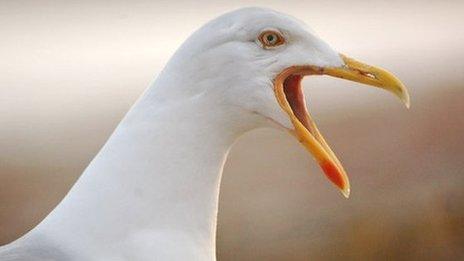
- Published16 July 2015
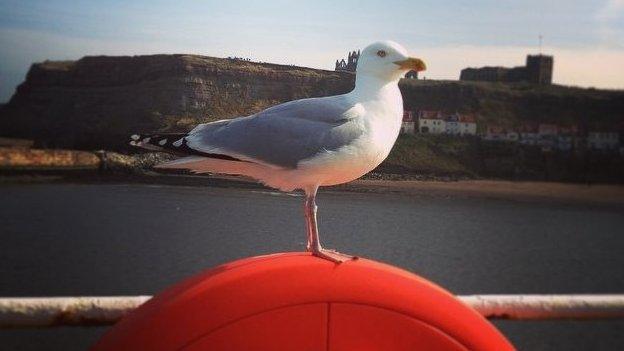
- Published16 July 2015

- Published15 July 2015
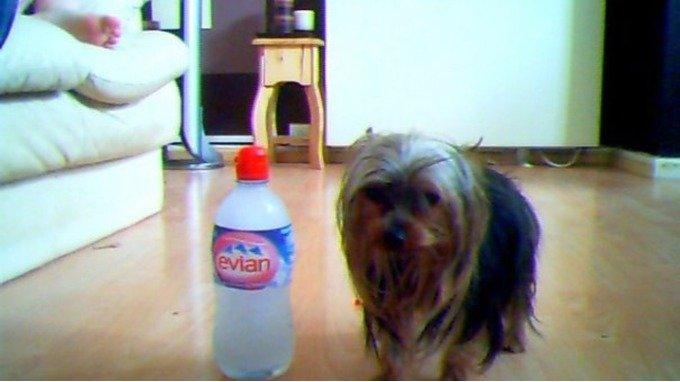
- Published7 July 2015
